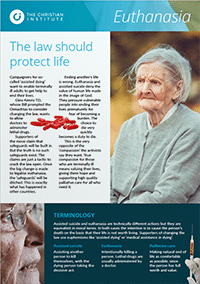A Bill designed to afford better protections for medical professionals who conscientiously object to abortion has passed its second reading in the House of Lords.
The Conscientious Objection (Medical Activities) Bill has been described as “important and timely”.
It seeks to ensure conscience objection rights for all medics and has now moved on to Committee Stage in the House of Lords. However, since it is a Private Member’s Bill, the Bill is not expected to pass.
‘Important medical freedom’
Baroness O’Loan, who sponsors the Bill, said: “The reasonable accommodation of conscientious objection is a matter both of liberty and equality: of individual freedom and social inclusion.”
She added that the Bill’s passing would allow for “the well overdue restoration of an important medical freedom”.
Baroness Cox, an honorary Vice-President of the Royal College of Nurses, believes that ensuring conscientious objection “is a truly important reform that ought to be made”.
And Baroness Eaton said she is “delighted” that the Bill has been introduced and “passionately” supports it.
‘Pressing need’
The Free Conscience Campaign has been launched in support of the Bill, starting a petition that has already gathered over 6,000 signatures.
Speaking for the campaign, Dr Mary Neal, Senior Lecturer at Strathclyde University, said: “There is a pressing need for statutory conscience rights which actually protect those who need protection.
“The current law fails to do this, so this Bill is a necessary and timely step.”
Side-lined
Despite conscientious objection being recognised in the 1967 Abortion Act, a 2016 inquiry found that medics are facing pressure to sacrifice their principles or change job.
Witnesses giving evidence to politicians on the All Party Parliamentary Pro-Life Group offered numerous examples of people who had been sidelined because of their view on abortion.
In a report, the parliamentarians responded by saying they were “gravely concerned”, and backed the introduction of ‘reasonable accommodation’ of conscience into law.
In 2014, the UK Supreme Court narrowly interpreted the law, causing concern to pro-life groups. The case involved two Roman Catholic midwives who were told they did not have the right to avoid supervising staff involved in abortion.


